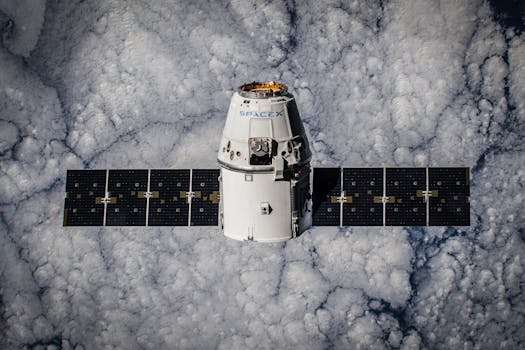
The Future of Satellites: Revolutionizing Global Communication and Exploration
Future of satellites is an exciting and rapidly evolving field, with new technologies and innovations emerging every day. The use of satellites has become an essential part of modern life, from navigation and communication to weather forecasting and space exploration. As we look to the future, it is clear that satellites will play an even more critical role in shaping our world.
One of the most significant advancements in satellite technology is the development of small satellites, also known as CubeSats. These tiny satellites are designed to be smaller, cheaper, and more efficient than traditional satellites, making them more accessible to a wider range of users. Small satellites have a wide range of applications, from earth observation and remote sensing to communication and navigation.
Advancements in Satellite Technology
Another area of significant advancement in satellite technology is the development of reusable rockets. Companies such as SpaceX and Blue Origin are leading the charge in this area, with their reusable rockets capable of launching satellites into orbit and then returning to Earth for refurbishment and reuse. This technology has the potential to significantly reduce the cost of launching satellites into space, making it more accessible to a wider range of users.
In addition to these technological advancements, there are also a number of new applications for satellites that are being explored. For example, satellites are being used to provide internet access to remote and underserved communities, helping to bridge the digital divide and promote economic development. Satellites are also being used to monitor and track environmental changes, such as deforestation and climate change, providing critical data for scientists and policymakers.
Challenges and Opportunities
Despite the many advancements and opportunities in the field of satellites, there are also a number of challenges that must be addressed. One of the most significant challenges is the issue of space debris, which poses a significant threat to the safety and sustainability of space exploration. As the number of satellites in orbit increases, so too does the risk of collisions and other accidents, highlighting the need for more effective debris removal and mitigation strategies.
Another challenge facing the satellite industry is the issue of regulation and governance. As the use of satellites becomes more widespread, there is a need for clear and effective regulations to govern their use and ensure that they are used in a safe and responsible manner. This includes issues such as spectrum allocation, licensing, and cybersecurity, all of which are critical to the long-term sustainability of the satellite industry.
Conclusion
In conclusion, the future of satellites is a exciting and rapidly evolving field, with new technologies and innovations emerging every day. From small satellites and reusable rockets to new applications and challenges, there are many opportunities and challenges that must be addressed. As we look to the future, it is clear that satellites will play an even more critical role in shaping our world, and it is up to us to ensure that they are used in a safe, responsible, and sustainable manner.




